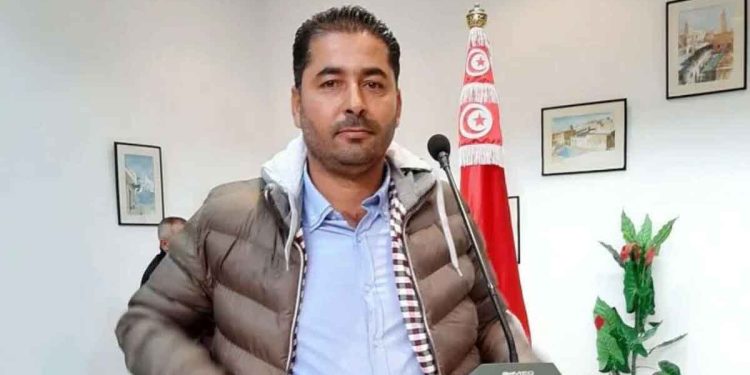The Tunisian authorities’ targeting of journalists had only increased following last year’s 25 July coup, when President Kais Saied initiated a series of ‘exceptional measures. Numerous violations of journalists’ rights have been recorded since then.
Recently, a Tunisian judge sentenced journalist Khalifa al-Qasimi to one year in prison for “disclosing security secrets”.
A member of al-Qasimi’s defense team, lawyer Dalila Mosaddeq, reports that the terrorism-focused court sentenced al-Qasimi to a full year of prison time on charges of “intentionally disclosing information related to operations to intercept a terrorist cell.”
The defendant is a correspondent for Mosaïque FM, based in Tunis, the capital.
Mosaddeq added that the ruling will be appealed, and said that al-Qasimi “has not committed any professional mistake; he has simply practiced his profession.”
Al-Qasimi was arrested on 18 March of this year under so-called counter-terrorism laws. The case relates to al-Qasimi’s publication of news of the dismantling a terrorist cell in the country. The public prosecutor ordered his release after one week of detention.
Over the last period, President Saied has frozen parliament, lifted deputies’ immunity, and abolished one of the major bodies that oversaw constitutional arrangements. Saied has governed largely by decree, and has taken an active role in public prosecutions.
At the time of his arrest, the National Syndicate of Tunisian Journalists (NSTJ) condemned a-Qasimi’s arrest and demanded his immediate release.
An NSTJ statement says, “the arrest of the journalist al-Qasimi is a new chapter in the era of the post-25 July regime, striking a blow against press freedoms in Tunisia and intimidating journalists.”
The trade union has called on the relevant public prosecutor to, “review his decision and immediately release al-Qasimi.”
Since 25 July 2021, the staff of media and human-rights organisations have been subjected to harassment, arrests, and even prosecution, as punishment for their professional activities.
Recently, the authorities arrested a number of elected members of the Tunisian parliament, some according to military protocol, raising fears of a new era of authoritarianism in the country.



























